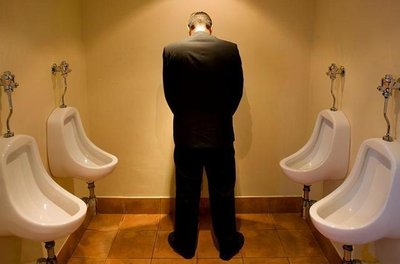Frequent Urination at Night, Either Prostate Enlargement or Prostatitis?
Urination at night means you have to get up to urinate during sleep; morning and bedtime urination do not count; frequent urination at night means an increased frequency of urination during sleep.

So, what's frequent urination at night?
Adults normally urinate 4-6 times during the day and 0-2 times at night. Increased urination at night can have physiologic and pathologic causes and is often multifactorial and overlapping.
Physiologic factors include:
If you drink a lot of water during the day, the increase in water intake will lead to an increase in urine, naturally leading to frequent urination at night. Therefore, drinking water during the day also needs to be moderate; do not drink too much at a time, and the amount is not the better.
Another physiological reason is a change in dietary structure, such as frequent intake of foods with high water content, such as fruits, tea, etc., resulting in increased water intake and naturally urinating more often at night. Drinking too much water before bed, eating too salty, and so on will cause frequent urination. Therefore, we must develop good drinking and eating habits to avoid overeating and overdrinking.
The most common pathological factors are prostatic hyperplasia and prostatitis.
Prostatic Hyperplasia: It mostly occurs in middle-aged and old-aged men. When a man reaches middle age, the secretion function of the prostate gland changes, leading to prostate hyperplasia, which in turn oppresses the urethra, causing men to experience the symptoms of frequent urination at night, urinary urgency, and endless urination.
Prostatitis: If the patient is a young adult man, it is usually considered prostatitis. Prostatitis and prostatic hyperplasia are similar in mechanism; both have an enlarged prostate. However, prostatitis tends to be inflammation-based, and in addition to frequent urination, there is often dysuria, a burning sensation in the urethra, and soreness in the abdomen and perineum.
However, in addition to these two disease factors, the following conditions may be responsible for frequent urination at night.
Cystitis: It is usually caused by the obstruction of the upper urethra or tumors indirectly caused by the potential disease or because of other parts of the urinary tract and other parts of the infection spread to this caused by the symptoms of frequent urination, urinary urgency, itching and burning during urination, and even blood in the urine.
Genital Infection: When the male genitourinary system is infected by bacteria, fungi, mycoplasma or chlamydia, or other infectious diseases that make the organ lesions, resulting in impaired function, will also appear to vary degrees of frequent urination, urinary urgency, painful urination, urination difficulty, and other symptoms.
For frequent night urination caused by genitourinary disorders, in addition to targeted treatment, patients can also use the patented traditional Chinese medicine Diuretic and Anti-inflammatory Pill to eliminate the symptoms. The medicine is formulated with various herbs, which can comprehensively regulate the patient's genitourinary system, eliminate inflammation, and completely eradicate the problem of urinary discomfort.
Apart from this, diseases such as high blood pressure, chronic nephritis, renal insufficiency, and urinary stones may also lead to increased urination at night. These conditions need to be consulted and treated under the guidance of a physician.
In addition, good living and dietary habits can also help to alleviate the problem of abnormal urination.
Patients can usually take in more food that is good for the spleen and kidney, nourishing the heart, and tranquilizing the mind, such as walnuts, black sesame, yam, and glutinous rice are good choices.
At the same time, patients can also make the nervous system enhance the control of urination, that is, the intention to control the physiology so that the sensitivity of the bladder decreases, to correct abnormal urination habits, and to reduce the number of urination times. However, it should be noted that the time of holding urine should not be too long, or it is easy to get uremia.
You may also be interested in:
Relieve Prostatitis: Don't Let the Disease Keep You Up at Night
Three main prostate diseases: prostatitis, BPH, prostate cancer
BPH and Prostatitis - Differences in Signs and Symptoms



